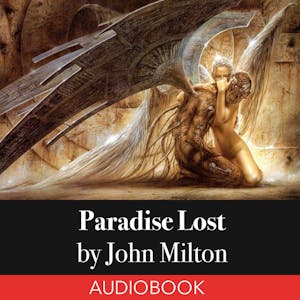"As Vergil had surpassed Homer by adapting the epic form to celebrate the origin of the author’s nation, Milton developed it yet further to recount the origin of the human race itself and, in particular, the origin of and the remedy for evil; this is what he refers to as “things unattempted yet in prose or rhyme.”
After a statement of its purpose, the poem plunges, like its epic predecessors, into the midst of the action, shockingly bringing to the front the traditional visit to the underworld, for Satan’s malice is the mainspring of the negative action. But at the center of the poem lies the triumph by the Son of God over the angelic rebels, which counteracts Satan’s evil design. To preview this pattern, the fallen angels’ council in hell is counterbalanced by a council in heaven, in which the Son offers himself as a scapegoat for mankind long before the original sin has been committed.
With this background, the narrator introduces us to Eden and our “Grand Parents.” Satan is detected spying on them and is expelled from the garden, after which God sends an angel to tutor Adam and Eve in the history of the heavenly war that has led to the present situation. At Adam's request, the heavenly guest then recounts the creation of the visible world, explaining also the proper nature of development, whereby all things proceed from lower to higher by refining that which nourishes them.
Satan, however, returning in the form of a snake, offers Eve an evolutionary shortcut in the form of a magical food capable of endowing her with super powers. He claims it has conferred on him both reason and speech. Since Eve is suffering at the moment from a fancied slight to her moral strength, she allows herself to forget her recent lesson and yields to this temptation. Adam, unable to imagine life without Eve (and failing to explore alternatives to sin), accepts the fruit from her and eats as well.
